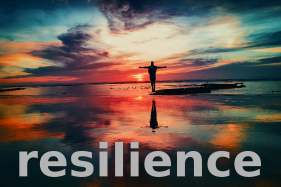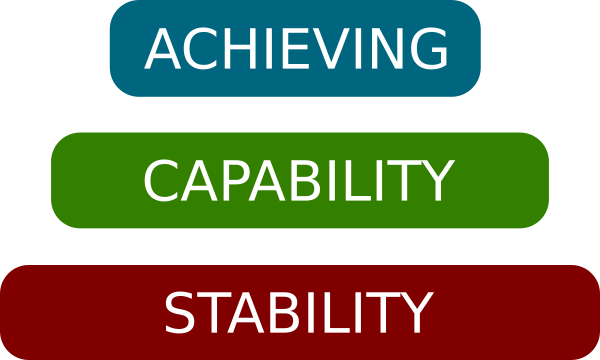Emotional resilience
Evaluating and developing emotional resilience

The Emotional Resilience Questionnaire (ERQ) is an online set of tools for understanding how well people will cope with difficult situations, ranging from everyday things that some people find very difficult to other things that are more obviously traumatic.
The questionnaire is easy to administer and provides exceptionally detailed information that helps to identify aspects of emotional resilience that people may need to build upon and strengthen. It includes guidance for bespoke group improvement programmes to help to raise emotional resilience.
It can be used as an assessment of individuals or in surveys.
The need for the ERQ became evident in our work with schools and youth justice.
We ask about many different aspects of emotional resilience (see below) and also any events, such as: getting into serious trouble, bullying, problems in your home, death of a loved one, that have had deeply traumatic effects and continue to cause concern. In analysis and reports we are able to relate areas of resilience to traumas and to provide guidance for group improvement programmes.
Emotional Resilience Model
The model of emotional resilience we use is based on the concept that achieving resilience requires stability and. We believe that without stability it is harder to be capable, and without capability it is harder to achieve.

Stability
Emotional stability is built upon positive relationships, control of emotions and appropriate expression of them. it also requires good physical health and understanding of emotional state.
Social Support: Having positive relationships and a strong network of family, friends, and colleagues who provide emotional and practical support.
Self-Regulation: The ability to manage and control emotions, particularly in stressful situations.
Emotional Expression: The ability to express and communicate emotions appropriately.
Physical Well-being: Maintaining good physical health through proper nutrition, exercise, and sleep.
Capability
To become emotionally capability needs adaptability in the face of change, the ability to solve problems as they arise and to view them in a balanced way.
Self-Awareness: Understanding your own emotions, strengths, and weaknesses.
Flexibility: The ability to adapt to new circumstances, to be open to change and new experiences, and adjust your approach as needed.
Problem-Solving Skills: The capacity to effectively tackle challenges and find solutions.
Cognitive Restructuring: The ability to re-frame negative thoughts and view situations from a more balanced perspective
Achieving
Achieving means having a sense of directions and being optimistic and confident.
Sense of Purpose: Having goals, values, along with motivation and a sense of direction in life.
Optimism: Being positive and a belief in your ability to overcome challenges.
Self-Efficacy: Being confident and believing in your ability to succeed, perceive and handle situations effectively.
Events people struggle with
To understand and potentially improve relevant aspects of emotional resilience we ask about any events that people have experienced or struggled with:
Trying to fit in
Experiencing bullying
Expectations to conform
Getting into serious trouble at home at school or with the police
Money, health, drug misuse and/or violence problems at home
Physical and mental health issues
Being pushed into criminal activities, drugs or extremism
The breakdown of parent/carers' relationships
The death of a loved one
Being the victim of exploitation
Global issues: wars, covid19, climate-change
Being somewhere that is too noisy or has very bright lights
We also ask if there are any other kinds of event that trouble them
Benefits
Improving people's emotional resilience
Enhancing a more productive learning environment
Developing a positive social environment
Improving mental health and well-being
The provision of detailed guidance to aid bespoke group improvement programmes
Encouraging a collegiate approach to improving emotional resilience between teacher and children in a tutor group.
Ease of use and implementation
Valuable accessible information in instant reports
Simplified communication with stakeholders and users of information
Methods
Understanding emotional resilience and trauma cross the school - Survey
Schools that conduct a survey will comprehend at the level of the school, year group or class, where their pupils may need additional support with emotional resilience. When taking steps to improve emotional resilience schools, heads of year and class teachers have information about their group can implement systems tailored to meet those needs effectively and draw on the guidance we provide to create relevant programmes.
We provide reports by school year and by form group. This allows form tutors to see how their specific group compares to the year as a whole, enabling them to offer targeted support where it is most needed.
Understanding emotional resilience and trauma for an individual - Assessment
When working with individual children using the Trauma Recover Model it is vitally important for the foundations of the model (stability and building trusted relationships) in order to be able to address trauma and try to find a path to recovery, then achievement and success. Our Emotional Resilience assessment helps professionals and participants to understand their emotional resilience when they start working together and then to see how well they have managed to improve their resilience after they have worked together.
To learn more or schedule a demonstration, click on our online chat or you can call us on 01189 781078 or email at This email address is being protected from spambots. You need JavaScript enabled to view it. to discuss.
